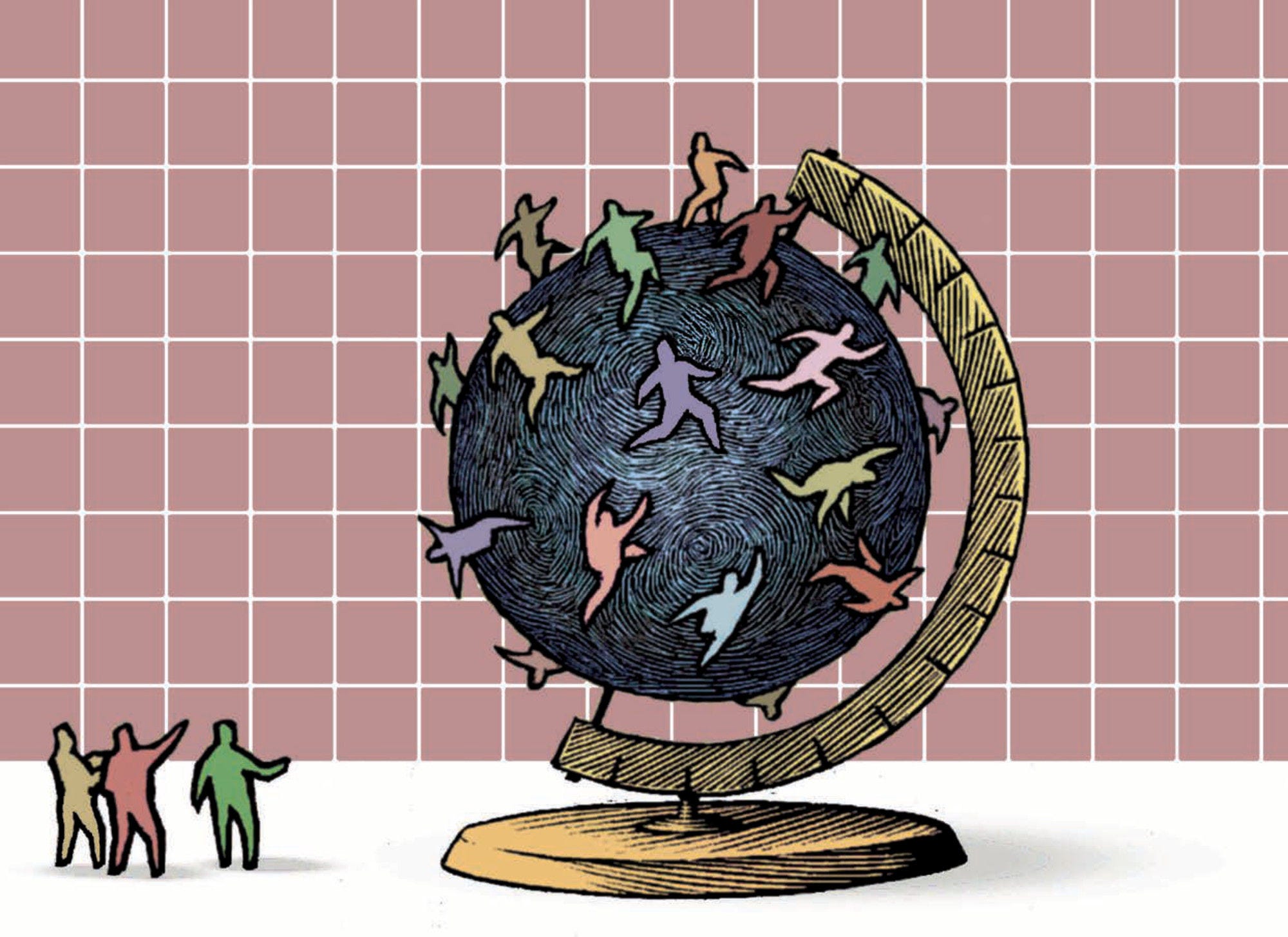In 2017, Luxembourg received 22 000 new immigrants on a long-term or permanent basis (including changes of status and free mobility), 10.3% more than in 2016. This figure comprises 77.8% immigrants benefitting from free mobility, 6.9% labour migrants, 8.4% family members (including accompanying family) and 6.2% humanitarian migrants.
Around 400 permits were issued to tertiary-level international students and 1 200 to temporary and seasonal labour migrants and trainees (excluding intra-EU migration). In addition, 33 000 intra-EU postings were recorded in 2017, an increase of 23% compared to 2016. These posted workers are generally on short-term contracts.
France, Portugal and Italy were the top three nationalities of newcomers in 2017. Among the top 15 countries of origin, India registered the strongest increase (200) in flows to Luxembourg compared to the previous year.
In 2018, the number of first asylum applicants decreased by 4.3%, falling to around 2 200. The largest groups of applicants come from Eritrea (400), Syria (300) and Iraq (200). The largest increase since 2017 concerned nationals of Eritrea (200) and the largest decrease nationals of Syria (‑100). Of the 1 400 decisions taken in 2018, 71.9% were positive.
Emigration of Luxembourgers to OECD countries decreased by 19% to 3 000. Two-thirds (64.4%) of this group migrated to Germany, 9.7% to France and 5.7% to the Netherlands.
The law of 8 March 2017 amends existing legislation in the domain of legal migration affecting salaried workers, independent workers, European Blue Card holders, students, and family members. It also introduces a new resident status for investors. The seasonal workers, Intra-Corporate transfers and “European Blue Card” EU Directives were incorporated into the law. The law also specifies categories of third-country nationals who are not authorised to change their temporary status into a long-term one, notably trainees, au pairs and seasonal workers.
The EU recast Students and Researchers directive was transposed in July 2018, creating, for the first time, a job-search extension for graduating international students, who may thus remain up to nine months to seek employment or start a business. It also increases the number of hours of employment for students to 15 hours/week.
The new law on Luxembourgish Nationality was approved in 2017, amending the naturalisation policies previously in place. The main changes relate to the reduction of the required duration of residency from seven to five years as well as the introduction of jus soli, conditional on an uninterrupted period of residence during the five years that precede reaching majority (age 18). In terms of language requirements, successful completion of an oral test is all that is required. A mandatory course for all eligible candidates, named “Vivre ensemble au Grand-Duché”, was also introduced under the law.
Under the auspices of the inter-ministerial Integration Committee and the OLAI (Luxembourg Reception and Integration Agency), a new National Action Plan on Integration (PAN Integration) was adopted in July 2018. It focuses on two areas: i) reception and social support for applicants of international protection; and ii) the integration of all non-Luxembourgers residing in Luxembourg. It covers three cross-cutting areas: access to information and interaction; quality of services; and international and national cooperation and coordination.
Following the Parliamentary elections held in October 2018, the reception of applicants for international protection (AIP) became a competency of the Minister of Immigration and Asylum (previously of the Minister of the Family and Integration). Measures to facilitate the integration of AIP (notably easier access to temporary work authorisation as well as to social housing) are foreseen as well as the extension from three to six months of the time period within which AIP are not required to have health insurance, housing and resource conditions for family reunification. The Law of 16 December 2008 on reception and integration is expected to be amended accordingly after which municipalities should receive more support to integrate newcomers, notably with the nomination of local integration officers. With regard to illegal stay, civil society representatives should be mobilised to advise the minister on case-by-case decisions on regularisation based on humanitarian motives.
For further information:
www.mae.lu
www.statistiques.public.lu
www.olai.public.lu
http://www.guichet.public.lu/citoyens/fr/immigration/
